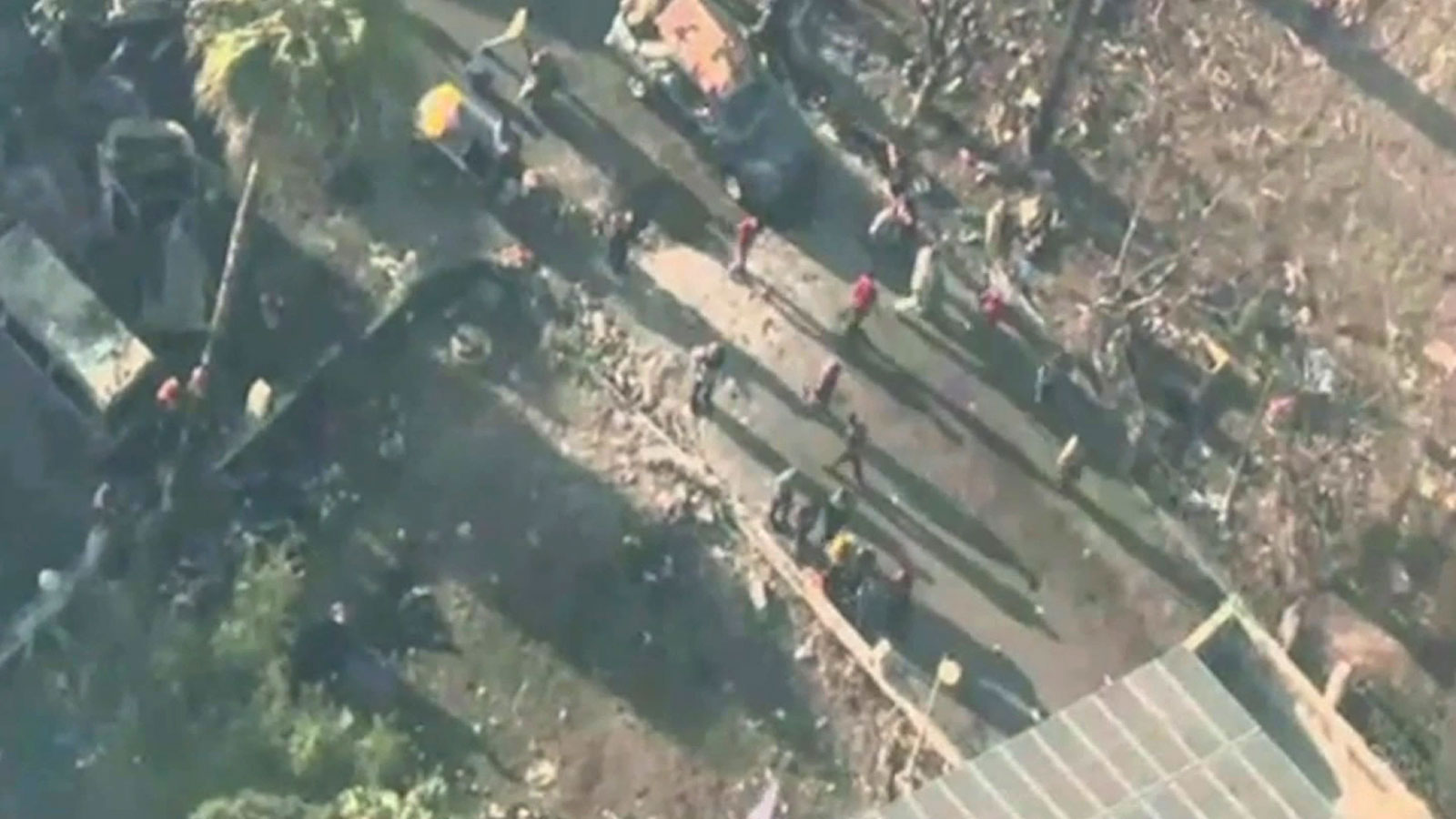
Jordan’s foreign minister explains cancellation of summit with Biden
Jordanian Foreign Minister Ayman Safadi speaks with CNN’s Becky Anderson. (Credit: CNN)
Jordanian Foreign Minister Ayman Safadi explained to CNN that the cancellation of the summit with US President Joe Biden was in response to Tuesday’s deadly explosion at a hospital in Gaza. Creating a more favorable environment for resolving the current conflict between Israel and Hamas.
“We had a long and deep discussion with the Americans and came to the conclusion that the presidential charter, the office of the president, is very important,” Safadi told CNN’s Becky Anderson. US .US crisis management now and beyond.
“I think everyone has come to the conclusion that it’s better not to have a president in this situation because what people were hoping for was a decision to end the war. Obviously, that decision was not close,” he said.
Jordan and the United States continue to work to find a solution for the region, Safadi said, adding that “the role of the United States is simply essential.”
Safadi’s comments came a day after Tuesday’s explosion at Al-Ahly Baptist Hospital. After the explosion, Jordan canceled a planned summit with Biden and the leaders of Jordan, Egypt and the Palestinian Authority. A White House official told reporters that Biden, who visited Israel, would postpone his trip to Jordan after consulting with King Abdullah II.
Gaza officials blamed Israel for the hospital blast, while Israel Defense Forces said its intelligence proved it was a “failed rocket launch” by the Palestinian group Islamic Jihad. The group denied Israel’s claim.
According to the National Security Council, the United States currently believes that Israel is “not responsible” for the explosion.
However, in his interview with CNN, Safadi reiterated Jordan’s belief that Israel is responsible: “Everybody here believes that Israel is responsible. The Israeli army says it’s not… But to be honest, try to find someone who believes that. In this part of the world .
He called for an independent international inquiry to find out the truth.
Safadi stressed the urgent need for a ceasefire between Israel and Hamas. He welcomed the news of Israel’s agreement to deliver humanitarian aid from Egypt to Gaza as a possible step towards a ceasefire and stressed the importance of prioritizing peace over war.
“We are looking for a humanitarian corridor that brings medicine, food and other supplies to the people of Gaza. We have had a hospital in Gaza since 2009. In a week it runs out of supplies and cannot operate. So we don’t see that happening, yes it does, denying people access to food and water. This will be the first step towards reducing war crimes through,” he added.
Safadi reiterates his firm stance against the relocation of the Palestinian people to Jordan
Safadi reaffirmed the country’s unwavering stance against any attempt to relocate the Palestinian people to Jordan.
“We will not allow Israel to transfer the crisis to Jordan,” Safadi told CNN’s Becky Anderson on Wednesday. “If there’s any real attempt to do that, the Palestinians don’t want it. The Jordanians don’t want it.”
“So what it will do, let me be honest, is another war in the region. It will expand the conflict zone, it will not bring peace. So, let’s not get it wrong. Our position is unwavering,” Safadi continued. “We will never allow the relocation of the Palestinian people to Jordan. That would take the conflict to a new dimension that would be dangerous and devastating for the entire region.”
He stressed that such a transfer would violate international law and would worsen the conflict in the region. Safadi stressed the importance of a two-state solution and urged the international community to work for peace to avoid a new escalation of the Israeli-Palestinian conflict.
“Israel needs to understand this. The world needs to understand that — I’m warning one thing here, and we say this as a country that, you know, has very good relations with all our Western friends and allies. The Street sees this clear strong support for Israel in this war, ” he said. “There’s a growing perception that this is a Western-Arab-Muslim war. That’s a place we don’t want to go.”

“Introvert. Thinker. Problem solver. Evil beer specialist. Prone to fits of apathy. Social media expert. Award-winning food fanatic.”





More Stories
Two influencers drown after refusing to wear life jackets: “ruining selfies”
Uruguay 2024 election results: who won and when is the second round | Waiting to know whether there will be a runoff or not
Uruguay: Lacalle Pou leaves with his figure on the slopes | The Marcet and Asteziano scandals hit the right-wing ruler